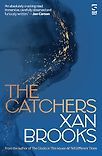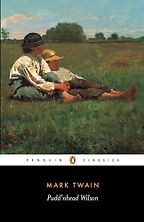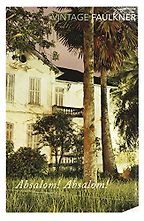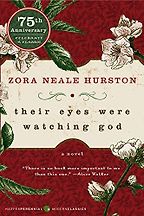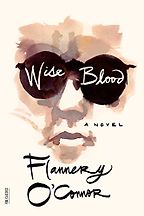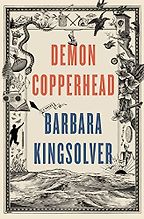How did you become interested in historical fiction set in the American South?
I went to university in the United States. I wasn’t in the South; I was in Massachusetts, but I got very into Southern literature while I lived there. In my late teens and early twenties I was obsessed with the place, the literature, and the music as well. I read masses over that period of time, and periodically I revisit it.
I’ve also travelled in the South—to the Carolinas, Mississippi, New Orleans—as a tourist, but smart enough to at least realise the extent of my ignorance. I was a liberal white kid from England thinking, ‘Wow, everything here is about slavery, this terrible dark history’, which is of course true, but but it’s more complicated than that. The South is a mess, a minefield, but it’s like a concertina file. There’s all this history bunched right up together, huggle-muggle, tightly folded, past and present.
The paradox is that, although it’s obviously still quite segregated, and there is a huge suspicion on either side, these parallel worlds are tightly braided. They’re tangled up together; the people live cheek by jowl. So you have this long history of interracial relationships—some never acknowledged, but still simmering there in the gene pool. And all of this history is impossible to tease out without risking the whole structure exploding. So people live with it. It’s the water they swim in.
Your first book dates back to 1894. This is Mark Twain’s Pudd’nhead Wilson. It’s set early in the 19th century and features two young boys who are switched at birth.
Pudd’nhead Wilson is a prince-and-the-pauper tale. It’s about a boy called Chambers, who is 1/32 Black—which basically means that he’s white in everything but the law—and a boy called Tom, the white master’s son. Roxy, Chambers’ mother, swaps them in the crib. So Chambers is raised as a white master and Tom is raised as a slave.
Twain follows this conceit through, and in a way that’s very much in keeping with the confusion of the South. It’s not a neat little parable or morality tale. The real Chambers grows up to be a nasty piece of work, and Tom becomes the noble slave.
So it’s sometimes misread as a reductive story, a book about nature as opposed to nurture, as though Twain was saying that if you take a savage and put him in the master’s seat, he will behave like a savage. It was seen as actively unhelpful to the progressive cause, whereas I would argue that it really is a book about nurture. It’s about the impact of structural racism and what it does to people: it makes you a monster or a martyr, depending on how the world treats you and expects you to behave.
Even that reading is to slightly misrepresent it. There’s also the possibility that Chambers is just an arsehole who would have been an arsehole as a slave or an arsehole as a master. So it’s a thorny, knotty book.
It’s not the best-known of Mark Twain’s books.
Obviously if you’re thinking of the American South, the initial impulse is to choose Huckleberry Finn. Which I love! But this one is more complicated and gives you more to grapple with. In Huckleberry Finn, the river is an engine of liberation. It’s an adventure story; they use the river to escape. In Pudd’nhead Wilson the river means only oppression. It means you’re being sold downriver to the Tidewater Plantations, the place you don’t want to go. The river means hardship and woe.
The book ends in a spectacularly pessimistic way. Chambers is sold down the river, his mother is rumbled and punished, and the white rule of the South is reestablished. I defy anyone to see that as a happy ending.
Twain was a famous wit. Is Pudd’nhead Wilson an enjoyable book, despite its grim trajectory?
It’s a messy book about a messy situation. Initially, Twain intended to write a story about Italian twins—‘The Extraordinary Twins’—and the ghost of that unrealised book is still there, although the twins are very much supporting characters here. Twain came around to the idea of doubling being used to tell a story that was closer to home, which creatively I think was the right decision – but he didn’t quite work it through enough. It feels he rushed down this new avenue, leaving all the widows of the earlier book rattling around in the story still.
Then you have the character Pudd’nhead Wilson himself. Wilson is a lawyer, an outsider who sets up in the small town and is widely ridiculed because he is smarter than the townsfolk and they don’t get his jokes. He’s set up in the opening chapter as if he’s going to be the hero of the book.
Right, it’s a kind of frame story.
He gives his name to the title. Then he kind of goes away, and comes back as a sort of deus ex machina at the end, to identify the guilty party.
So it’s a knock-kneed book that doesn’t have the easy assurance and swing of Huckleberry Finn. Yet I think, in terms of understanding the confusions of the South, it takes a better, more honest approach.
Thanks, an interesting recommendation. Next, we have William Faulkner’s Absalom, Absalom! This book was published in 1936 and is a historical novel set during the American Civil War. It has a very clever structure—perhaps you’d talk us through it.
Yes. Absalom, Absalom! is, I guess, a story about stories. It’s ostensibly the story of Thomas Sutpen, who sets up a plantation called Sutpen’s Hundred, on 100 square miles of prime real estate in Mississippi that he has basically robbed from the First Nation people and sustains via slavery. He’s still a hero. In Mississippi terms, this makes him one of the great knights of the South.
But it’s a story told through his wife’s sister—who at one stage he tried to marry—who is now an elderly woman, telling it to a Harvard student called Quentin Compson, who then discusses it with his college roommate. So it’s a bit like what we would call in England ‘Chinese whispers’, or in America ‘Telephone’: the story is passed down and becomes distorted each time you hear it to the point that there is no actual truth, no definitive version of the Sutpen story.t
“There is the sense of it being a haunted land, still screaming, with no clarity or resolution”
There’s a great line early on in Absalom, Absalom! where he talks of “a deep South dead since 1865 and peopled with baffled garrulous outraged ghosts.” So there is the sense of it being a haunted land, still screaming, with no clarity or resolution. There are only different versions of events, all of them self-serving, depending on who is telling the story at that moment.
The classic Faulkner line that everybody trots out, from Requiem for a Nun, is: “The past is never dead. It’s not even past.” But Absalom, Absalom! is the great iteration of that line. It’s not even past, it’s not even real, it’s become a chimera or a fabrication, another story being told. It’s a live issue that is sustaining and replenishing people. Or, in an awful way, they are kind of yoked to it, doomed to have the same argument again and again and never get to the end of it.
Absalom, Absalom!—to the point that it baffles a lot of people—is the greatest exploration of that Southern theme. It’s the dark, twisted cousin of Gone with the Wind. Gone with the Wind is also about plantations, but it frames the South as a bastion of gallantry: the Lost Cause, a utopian world that was cruelly torn down, “a land of Cavaliers and Cotton Fields called the Old South.” Whereas, here, it’s the illegitimate Black children that you’ve had with your slave who come back to haunt you and ruin your perfect, phoney, suspect world.
It’s a great book. It’s a book I was utterly obsessed with at college. But, I have to confess, I’ve only read it once. Most books I love I will reread regularly, but this is—fittingly, like the Southern swamps—so dense. You’re constantly hacking through the foliage of the prose.
Faulkner’s writing is famously baroque.
It has these long, circuitous sentences that bamboozle you, lull you, turn you around. It’s like a weird labyrinth. Periodically I’ve tried to return. Perhaps now I have finally left enough time to make another proper attempt to get back into it.
I once had a conversation with a publisher of experimental poetry who told me I should read a certain text “at a gallop.” By which he meant: keep moving, don’t get bogged down. Should we take a similar approach with Faulkner, do you think?
That may be the way to do it. But it’s counterintuitive, isn’t it? Because Faulkner’s writing is so lush and so dense that you would imagine the way to do it must be a slow immersion. You think: I’m going to set aside a month and I’m going to read a page, de-tangle each sentence properly. The slow cooking approach. But, possibly, if you do that, you start to go a bit mad, lose track of the plot and your own place in it. So perhaps quicker is better. I don’t know.
Your third book recommendation is Their Eyes Were Watching God by Zora Neale Hurston, which was published in the 1930s but set at the start of the 20th century. What can this novel tell us about the American South?
What does it tell us? It tells us that Black women were right at the bottom of the pecking order. It’s very much about the Darwinian nature of the Deep South and the complicity of Black men within this system, where as long as they had a woman as their ‘property,’ they could be more accepting of their lack of power and agency within a system that was defined by either slavery or Jim Crow.
It’s the story of Janie Crawford, who returns to her hometown in Florida in her forties. She looks back at her life and marriages. In many ways, the book recounts a conventional female journey of discovery and empowerment. There’s the bad first marriage, the marriage that seemed better but soon turned bad as well, and the third, better marriage which then ends tragically. It travels around a well-trodden circuit, but because it’s about a Black woman, the stakes are that bit higher and the book is fraught with structural racism and difficult compromises.
It was widely criticised when it came out. The Black male critics of the Harlem Renaissance, notably Richard Wright, really took against it, I think because they had a notion of what Black literature should be doing at that point and what its targets should be. Zora Neale Hurston didn’t subscribe to that at all. She worked outside, on her own. So she was therefore seen as a traitor to the cause—and as having indulged in a kind of minstrelsy by using too much Black vernacular.
The dialogue is certainly gamey and ripe, sometimes almost a bit too much. Perhaps it was radical and necessary, but it was seen by the Black critics as over-affected, a cliché.
She was also problematic in terms of the politics of the time, in that she was kind of right wing. Fiercely anti-communist. Against the desegregation of schools. Possibly even saw segregation as a good and necessary thing. So she put a lot of people’s backs up. The progressive left wasn’t minded to like her writing.
She died in total poverty, and it was only in the 1970s that the book was rediscovered. Alice Walker, author of The Color Purple, visited her grave and cleared away the weeds. She had died ten years or so previously in a welfare hotel.
It’s a fiery book that completely sweeps you along. It gives you a sense of the role and opportunities and limitations and hopes and dreams of Black women at that time. There’s nothing that compares to it. Well, there’s the retro-fitted work that came later—by Walker and Toni Morrison, writers like that. But for the aliveness and the relatively contemporary nature of it, this is unparalleled.
Well, maybe we should address that point directly. We’re talking about historical novels set in the American South. But some of these books are set only a decade or two before they were written. We have Demon Copperhead coming up, which is a fairly contemporary novel, but I think you feel it taps into some period element of the Deep South nevertheless?
Yes. Maybe this is a weaselly argument, but can I make the case that the South is all history? Everything in the South drags the past in with it. Any novel set in the South is a historical novel, because it wrestles with and grapples with all those ghosts. That’s the argument, although I realise in the case of Demon Copperhead it might become even more thin and clunky.
We’ll get to it. But let’s first discuss Wise Blood by Flannery O’Connor. It was her debut novel, published in 1952, and as she wrote in an author’s note: “It is a comic novel […] and as such very serious. For all comic novels that are any good must be about matters of life and death.”
It’s another of my favourites. It’s a comic novel, yes. It’s incredibly funny. It’s always billed as a ‘Southern Gothic’; that’s the label that gets slapped on it. Southern Gothic, to me, sounds like a book that must be dark and knotted and heavy, covered with Spanish moss and mist. But it’s not that at all. It’s bright and barbed and conversational and simple. But it is also nasty, and it is about serious things. It’s grotesque.
I use that word with hesitation, because I think O’Connor hated being called grotesque. She saw that as a condescending framing of her characters and her world. But Wise Blood does have an element of the grotesque to it: these are damaged, unmoored people rattling around a fictional Tennessee town. Hazel Motes is the grandson of a traveling preacher, and he is a furious atheist—at least on the surface. He wants to establish the Church Without Christ, as an alternative religion. The further we go, though, we realise it is no different from any other old-time religion. It’s a resistance that’s not really resistance. He is utterly besotted by and defined by the things he hates and fears. He’s pushing back in the way that most people in the South, O’Connor implies, are.
When you travel in the South, you find a lot of these small towns—sorry, this is a real digression—but as you are coming into these towns, you go through the strip malls, the chain motels, the McDonald’s. They’re always the same, these strip malls, and you always think: This must be a sizeable, bustling town I’m coming to, there’s all this stuff in the outskirts. Then you get to the town and there’s nothing there. It’s boarded up, there’s literal tumbleweed blowing through. A couple of people asleep on a park bench. That’s it, that’s the town. And you realise that the town is actually what you passed, on the way into the historic, haunted centre.
So Wise Blood catches the sense of these places in the South being provisional, just stitched onto the landscape, ghost towns. A jerry-built society where the characters are without foundations. The only thing that seems to be driving them is the wild electricity of Jesus. They’re either fighting against this current that is hot-wiring them, or they’re riding it for all they’re worth. Either way, it’s not going to end well. These people aren’t really in relationships with each other, or even in relationships with the town that they’re in. They are just channelling this unstable current of God-talk.
That’s interesting. O’Connor has come under scrutiny recently after she was the subject of a biopic directed by Ethan Hawke. Do you believe that the enjoyment of literature by writers from the South should be tempered by the knowledge of the author’s life and beliefs?
They are all products of their time and place. By our vantage, they are all huge racists. Faulkner, O’Connor, Twain… it’s unavoidable. But do we then discount what they have to say? Their experiences, their knowledge of their time, their particular window on history? I think that, if we do, we are missing the point of literature, or any kind of art. Art is always the product of its time and place, and that includes the prejudices and ignorances of the artist who produced it. That’s the thing that makes it interesting, the thing you engage with. The thing you quarrel with and argue with and pit your own ideas against.
Of course, if someone is blinded by prejudice and writing crude stereotypes, then that obviously is going to make their work lesser. But I don’t think that’s necessarily true of Flannery O’Connor, and actually I’m particularly thinking of the short stories here. They manage an interesting depiction of the privacy of the Black world of the South. They give the sense that it exists and has its own codes of behaviour and conversations that she is only tangentially party to. She captures that quality very well.
I suppose that’s coming back to your earlier point about parallel worlds and braided histories.
Absolutely. While we are on the subject of films, though, they made a great adaptation of Wise Blood, really first rate. It was directed by John Huston, who did The Maltese Falcon, The Treasure of the Sierra Madre, all that. It was quite near the end of his life. It’s great. It captures that sort of antic, savage, weird quality of the book, and also the peculiar ahistorical quality of the South. It’s set in the late 1970s, although the book was written in the early 1950s. But though it’s set in a town with 1970s cars, there are still steam trains, and there is a sense that time is slightly out of joint.
Maybe this anachronistic quality might bring us to Demon Copperhead by Barbara Kingsolver. It was a recent mega-hit, which won a Pulitzer and the Women’s Prize for Fiction. It’s also a reimagining of David Copperfield, so it takes a Victorian plot but transplants it into contemporary Appalachia.
You know, if we are going to argue about whether it is a historical novel, I’d point out it is set in the 1990s, although admittedly it does trail into the near-present. So, yes, it is the least historical of these novels set in the American South. But the culture and the tension are still all rooted in the past.
It’s really about the opioid crisis still sweeping America.
It was criticised as being poverty porn, but I don’t really see that. It does risk being wildly sentimental, but I kind of like that. It’s old school. It has a confident, Dickensian snap and brio, a broad, swinging-for-the-fences ambition, and it worked for me. And the ending is the complete clichéd happy ending. Yet, because it’s such an enormous book, when you get there you feel like you’ve earned the big sentimental pay-off. I really liked it. It had me welling up.
I think contemporary novelists are too leery of sentimentalism. There has been so much flat affect and coolness. But feelings aren’t something to be scared of.
I think you’re right. People became too sophisticated—and once you start seeing the wires of something, the mechanism, then you feel like you’re being played. But surely the holy grail of all literature, all art, is to tackle these big emotions, to treat them honestly, with the kind of vastness they deserve. If you can do that, then surely that’s the pinnacle?
I think that Demon Copperhead does. I’m aware that a lot of people, much more sophisticated than me, would furiously disagree. And maybe I have been played, but it worked for me. I loved it.
Interview by Cal Flyn, Deputy Editor
October 22, 2024. Updated: January 23, 2025
Five Books aims to keep its book recommendations and interviews up to date. If you are the interviewee and would like to update your choice of books (or even just what you say about them) please email us at [email protected]
Five Books interviews are expensive to produce. If you've enjoyed this interview, please support us by donating a small amount.

